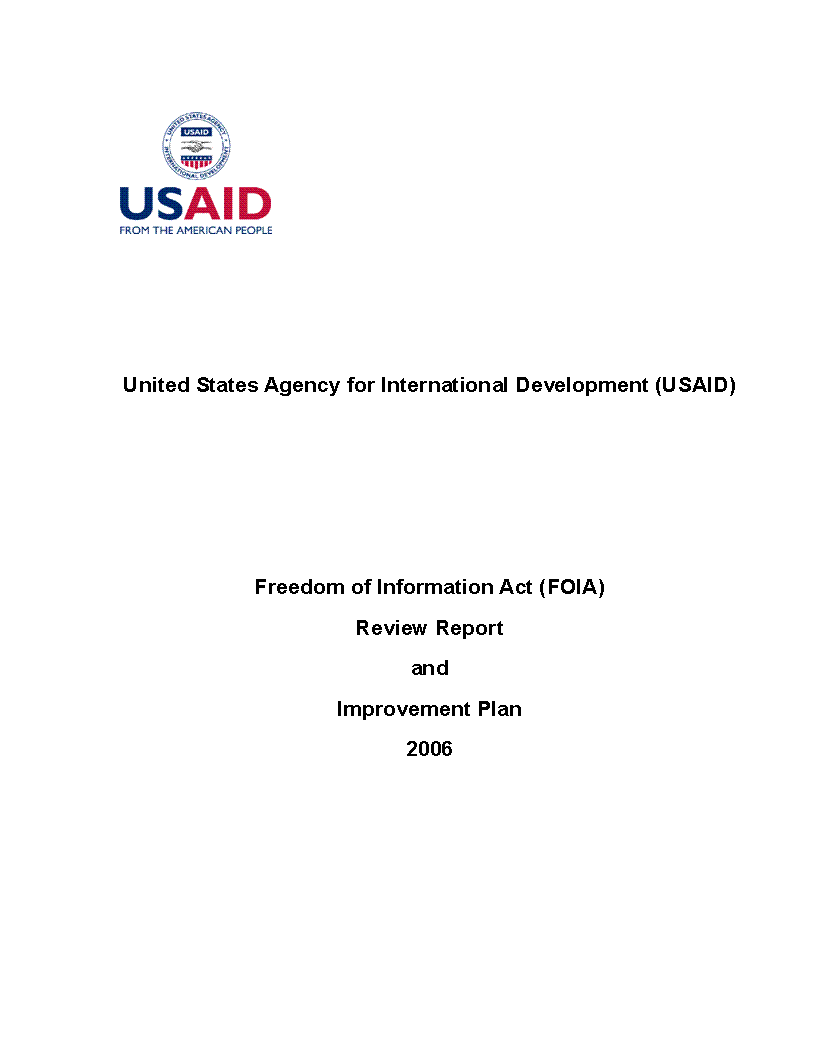Speeches Shim
The USAID FOIA Program is a centralized operation. All FOIA and Privacy Act requests are processed by a team residing within the Management Bureau’s Information and Records Division (IRD). The FOIA Team is comprised of five FOIA Specialists and an Administrative Operations Assistant. Periodically, additional processing assistance is provided by a contractor and Agency volunteers.
Many of USAID’s ways of doing business dramatically impact the FOIA Program. USAID implements its programs through contractors and grantees. The FOIA Team thus is called upon to process many procurement documents. Requests for assistance award documents bring with them the need to undergo the lengthy “submitter notification” process. USAID is an international organization with some 80 overseas missions. Searches for responsive documents often involve searches in both Washington and overseas units. Often the responsive documents are in a foreignlanguage. Some USAID missions have small staffs and are located in dangerous areas subject to periodic staff reductions or evacuations. The direct-hire staffs are Foreign Service Officers who rotate out of the Missions on a regular basis. This practice impacts the “institutional memory” of the mission staffs. These characteristics sometimes make the location of responsive documents time-consuming or unsuccessful.
With its involvement in Iraq and Afghanistan and such program areas as HIV/AIDS, malaria eradication, and faith-based programs, USAID has become a news-worthy organization. The receipt of requests from the media and public interest groups has grown tremendously. Often these requests are for a voluminous amount of records and are granted expedited processing status. This has stretched the resources of the USAID FOIA Program.
A USAID FOIA Specialist must be a flexible and highly knowledgeable professional. The USAID FOIA Team processes a wide variety of documents – procurement documents, diplomatic communications, classified documents generated by USAID or other agencies, reports covering a broad spectrum of technical areas, program reports, personnel and security records, and internal deliberative-process communications. A USAID FOIA Specialist can expect to consider the use of most of the FOIA exemptions.
The FOIA Program has and will continue to face many challenges. Increases in the number of complex and voluminous requests, especially requests from the media and public interest groups, have overwhelmed the FOIA Team. A recent staff increase has not been sufficient to handle the increased workload in a timely manner. The Program’s Information Technology (IT) resources have been scarce and antiquated. The future, however, does seem brighter. USAID has recognized the importance of the FOIA in educating the public about USAID’s operations and programs. The Agency has a strong commitment to transparency. USAID is determined to increase the FOIA Program’s resources to the greatest possible extent within the limits of the Agency’s operating expense budget.



Comment
Make a general inquiry or suggest an improvement.